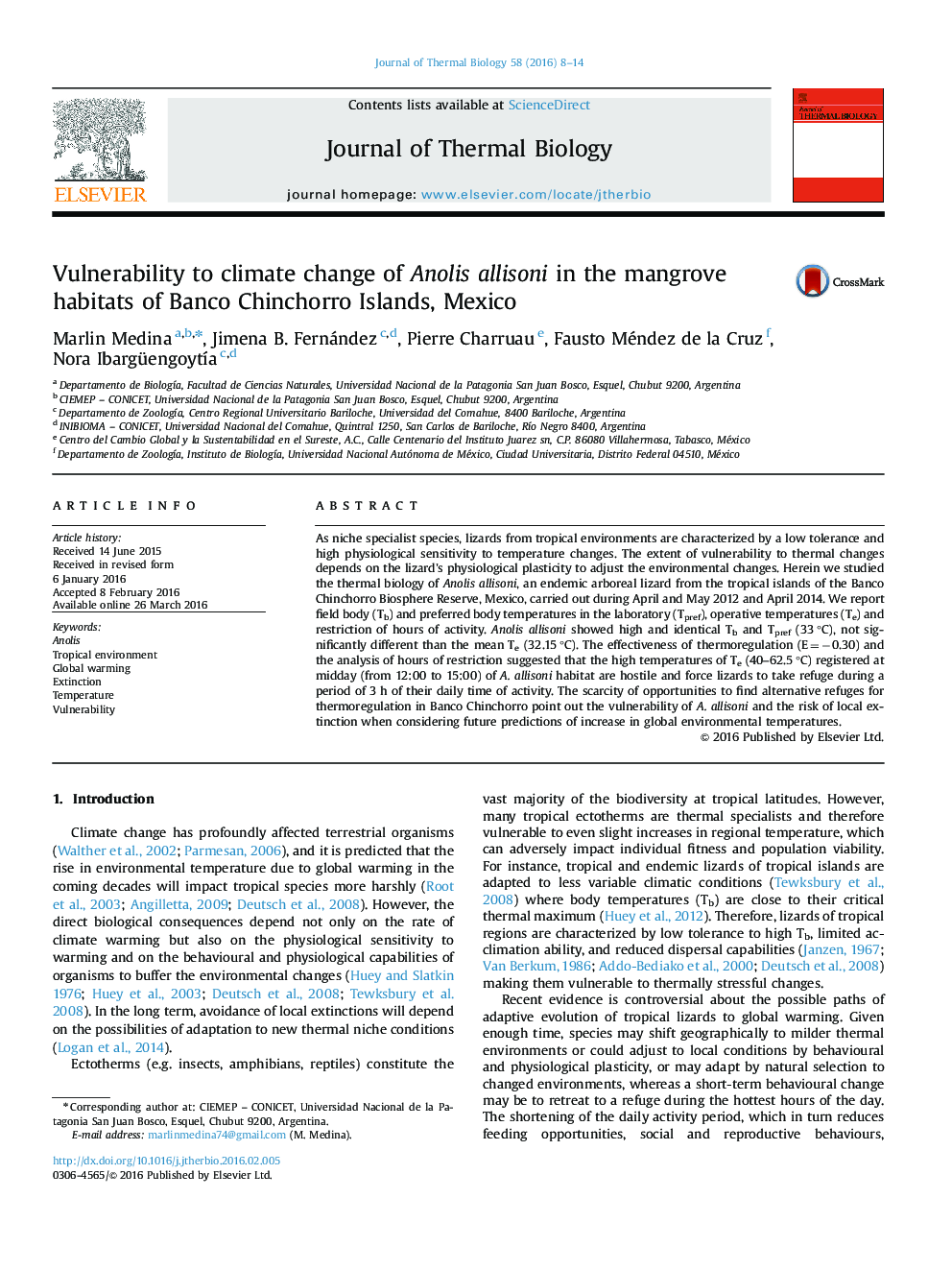| Article ID | Journal | Published Year | Pages | File Type |
|---|---|---|---|---|
| 2842654 | Journal of Thermal Biology | 2016 | 7 Pages |
•We estimated a decrease in daily activity time of 3 h.•Species is thermal specialist and the effectiveness of thermoregulation was negative.•Anolis allisoni result vulnerable to thermal stressful changes.
As niche specialist species, lizards from tropical environments are characterized by a low tolerance and high physiological sensitivity to temperature changes. The extent of vulnerability to thermal changes depends on the lizard's physiological plasticity to adjust the environmental changes. Herein we studied the thermal biology of Anolis allisoni, an endemic arboreal lizard from the tropical islands of the Banco Chinchorro Biosphere Reserve, Mexico, carried out during April and May 2012 and April 2014. We report field body (Tb) and preferred body temperatures in the laboratory (Tpref), operative temperatures (Te) and restriction of hours of activity. Anolis allisoni showed high and identical Tb and Tpref (33 °C), not significantly different than the mean Te (32.15 °C). The effectiveness of thermoregulation (E=−0.30) and the analysis of hours of restriction suggested that the high temperatures of Te (40–62.5 °C) registered at midday (from 12:00 to 15:00) of A. allisoni habitat are hostile and force lizards to take refuge during a period of 3 h of their daily time of activity. The scarcity of opportunities to find alternative refuges for thermoregulation in Banco Chinchorro point out the vulnerability of A. allisoni and the risk of local extinction when considering future predictions of increase in global environmental temperatures.
